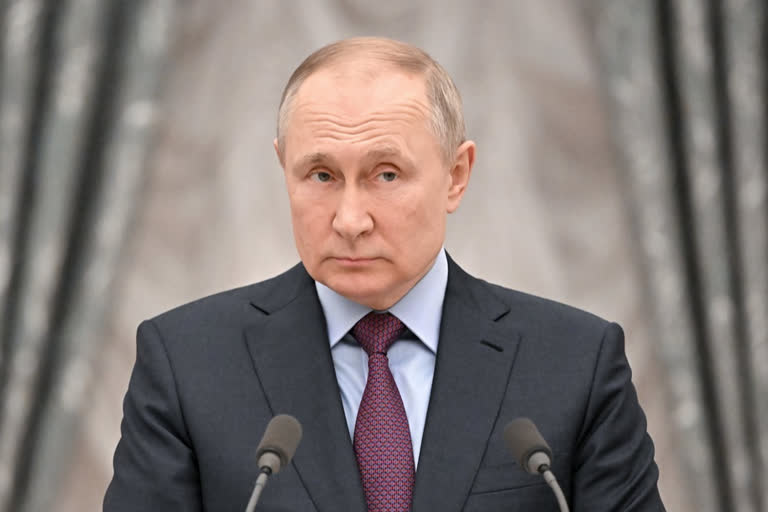New Delhi:Ever since Russian incursions well inside Ukrainian territory that started on February 24, a significant talking point among European diplomatic and top-tier political circles in recent days has been that of excluding Russia from SWIFT. A communication mechanism that runs secure, financial messaging services among 11,000 corporations in about 200 nations including India, the move could see Russia taking a huge hit economically.
The move appears to be currently in transit as the next big thing, with several tranches of sanctions already imposed by the United States, aided by its Western European allies such as the UK and Germany, who have taken measures of their own, such as freezing Russian banking assets or halting the ongoing work for the Nord Stream 2 natural gas pipeline.
Ukrainian Foreign Affairs Minister Dmytro Kuleba, on Saturday, tweeted out informing that he had discussed the issue with his French counterpart, Jean Yves Le-Drian, who stood in support of the decision. President Volodymyr Zelenskyy, meanwhile, said that he had spoken to Italian Prime Minister Mario Draghi, who too "supported Russia's disconnection from SWIFT".
Let us take a look at the exact nature of SWIFT, and the implications of a Russian ouster from the framework.
Also read:China is Russia's best hope to blunt sanctions, but wary
What is SWIFT
Based in the Belgian capital of Brussels, Society for Worldwide Interbank Financial Telecommunication (SWIFT), oversees since 1973 a smooth execution of global financial transactions, replacing the previously used Telex system. A cooperative under Belgian law, it does not oversee deposits and is controlled through representatives from several central banks, such as the US Federal Reserve System, Bank of England, European Central Bank (for European Union countries), and others.
What could Russia's exclusion mean
Notably, this is not the first time for the West and Europe to consider kicking Russia out of SWIFT. In 2014, during the latter's annexation of Crimea, it had been threatened with a similar warning, leading Russian Finance Minister to have suspected a contraction of 5% in its economy at the time.
